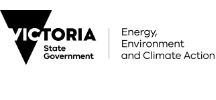Climate change engagement and communications practice review (phase 1)
Climate change is intensifying fire weather and increasing the severity of bushfire seasons, a trend projected to worsen. Consequently, the risk of bushfires is rising, impacting communities and what they value. With changing bushfire risk, there is a need to adapt and tailor our engagement and partnership approaches to work meaningfully with communities around these increasing impacts and uncertainties.
The Climate Change Engagement and Communications Practice Review (phase 1) is a Safer Together funded project, led by the Community First program. It offers evidence-based research to assist agency practitioners in engaging with communities about climate change and related bushfire risks.
Read the final report here.
A summary resource
This summary highlights key evidence-based insights and principles from the practice review. It can be used to support practice adaptation and skills development, enabling practitioners to work more effectively and collaboratively when addressing the complexities and uncertainties of climate change and its impacts on bushfire risk. Its focus is on the development of a process called the Climate Reflective Practice, rather than the detailed findings of the Review.
Read the summary resource here.
Climate Change Engagement and Communications Practice Review (phase 2)
The concepts and applications outlined in the Summary Resource are being tested in regional settings in partnership with local communities and agencies, as part of the phase 2 project.
We encourage readers to explore the work further in the practice review.
The 2019-20 fire season in Australia highlighted the impact of climate change. The role that community engagement and communications play in supporting planning, preparedness, response and resilience is an increasingly important management lever in the fire sector’s risk reduction toolkit. It is also important to differentiate between engagement and communications practices given these two methods can be very different and can serve different purposes.
The objectives of this project are therefore to:
- undertake a literature review of the known impacts of climate change on bushfire risk in Victoria, linking impacts to the values that communities care about
- document best-practice approaches to climate change engagement and communication
- identify and document the skills, knowledge and capabilities that are useful in supporting this engagement
- identify and document existing Victorian and/or Federal legislation, strategies, actions and programs that support and drive effective engagement practice.
This research is jointly funded by the Country Fire Authority (CFA) and the Department of Energy, Environment and Climate Action (DEECA) as part of Safer Together and supported by Natural Hazards Research Australia.





